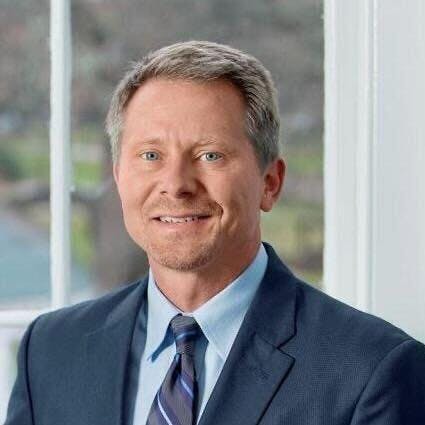Kevin Guskiewicz, the current chancellor University of North Carolina Chapel Hill and sole remaining candidate for Michigan State University's presidency, wrote that he’d only accept the job if he is able to lead “without undue interference.”
In written statements made to MSU's faculty weeks ago, Guskiewicz said he’s had “very direct and honest conversations” with MSU’s board of trustees — who have been accused of interfering in the university’s last two presidencies — about working more cohesively with his theoretical administration.
The writings — which were initially written anonymously but have since been attributed to Guskiewicz and obtained by The State News — give the first glimpse into his conversations with and plans for handling the university’s notoriously obtrusive elected board.
“If I were fortunate to be selected as the next president, I would only accept the role if I were given the opportunity to lead (MSU) without undue interference; instead, leading in a trusted partnership with the trustees, faculty, and staff," Guskiewicz wrote in the statements.
He wrote that he is “confident that the trustees are committed to this” and that he believes the board “values the principles of shared governance.”
The board did not return requests for comment sent Wednesday.
MSU's board and administration are separate. The administration, led by the president, runs the university day-to-day, while the board, which is elected statewide in partisan races, is tasked with overseeing the president and making big-picture decisions.
The university's recent presidencies however have been rife with allegations that the board has blurred those lines, meddling and interfering in the administration's work.
Samuel Stanley, who was appointed president in 2019, resigned last fall saying he had “lost confidence” in the board and grown tired of frequent interference by trustees.
The role was then filled by Teresa Woodruff, who still serves as the interim president today. The board has also been accused of meddling in her temporary tenure.
In a letter written last month, Trustee Brianna Scott accused board chair Rema Vassar of “bullying” Woodruff and usurping her authority by meeting with figures inside and outside the university behind Woodruff’s back to discuss major changes to the university.
Woodruff has said little about the allegations, but did release a statement calling work under Vassar “challenging” at times. Vassar, the first Black woman to chair MSU’s board, has rebuked the allegations, saying they are racially motivated.
Woodruff is not a candidate for the permanent presidency. She said in Aug. that she did not wish to be considered.
The board’s alleged interference has been criticized by figures inside and outside MSU.
Last fall, after Stanley voiced his concerns with the board, MSU’s faculty senate and student government organizations voted “no confidence” in the board’s ability to effectively govern the university.
Barbara Snyder, the president of the Association of American Universities, said in a statement released last fall that the board’s reported behavior amounted to “inappropriate meddling” and that “micromanagement and partisan politics have no place on a healthy university board.”
Guskiewicz has been the sole candidate to fill the vacated presidency for two weeks, since the other finalist, University of Texas at San Antonio President Taylor Eighmy, dropped out on Nov. 15.
The search that resulted in their candidacy was conducted in complete secrecy, with the board committing to only announce one chosen person, keeping the candidates and finalists completely confidential.
That frustrated members of MSU’s faculty senate, who hoped to have more input in the process.
Earlier this month, Faculty Senate chair Jack Lipton told The State News that he and other faculty leaders asked the board for a chance to interview the finalists. He said they were ready to "sign NDAs" or take other secrecy measures if that's what it took.
Support student media!
Please consider donating to The State News and help fund the future of journalism.
The board rejected that offer, instead giving faculty a chance to pose five written questions to the finalists, who would write their responses anonymously, so the faculty could provide feedback without knowing who the candidates are.
Then, The State News reported the finalists’ identities and Eighmy dropped out. After that, the faculty senate approached the board again, who gave them a non-anonymized version of Guskiewicz’s responses, secretary for academic governance Tyler Silvestri said.
Copies of those responses were then distributed to the faculty senate and obtained by The State News.
In his responses, Guskiewicz said that he and the board “discussed openly the need for faculty and staff to be able to challenge administrators and trustees to be better.”
“In return – it is expected that faculty would be focused on a collective ‘True North’ built on a commitment to intellectual diversity and teaching our students how to think, not what to think – and how to remain curious,” Guskiewicz wrote.
Despite what he called “illogical times” in higher education, Guskiewicz said he’s equipped to handle board tension. He said he dealt with trustee in-fighting and “concerns about some board members wanting more oversight” at UNC, and is “proud of what (they) have accomplished” despite it.
“I am certain we will not experience logical times in higher education anytime soon,” Guskiewicz wrote. “But I am also certain the trustees at (MSU) want to work collectively and collaboratively to make MSU one of the premier global public research universities in the nation.”
Guskiewicz said he’ll accomplish this by working closely with university groups in a “trusted partnership.”
Discussion
Share and discuss “UNC chancellor said he’ll only take MSU presidency if board promises not to interfere” on social media.







